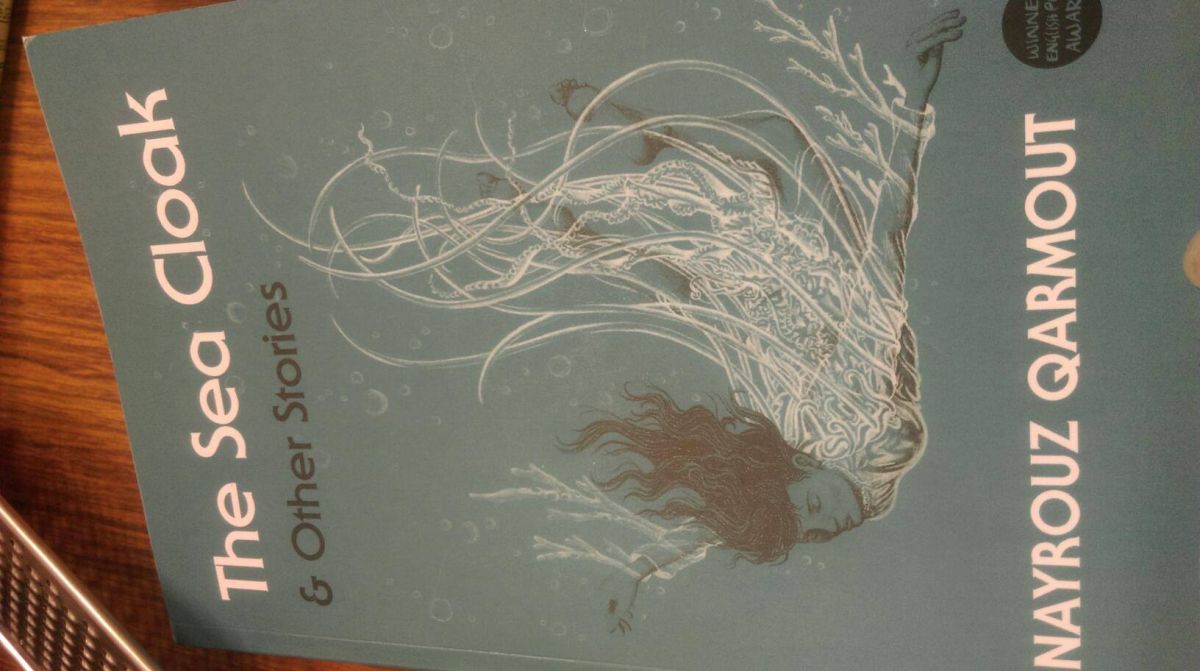Envisioning Palestine: The Sea Cloak and Other Stories
By Urussa Malik

Palestine is dominated by its post-1948 existence: Exile, conflict, and above all, its present-day colonial occupation. Its cultural traditions make use of poetry from Mahmoud Darwish, a canonical Palestinian poet and the likes of Edward Said who is most notably known for present-day post-colonial literary theory.
The Sea Cloak is a collection of 11 stories by the author, journalist, and women’s rights campaigner, Nayrouz Qarmout. She draws on her own experiences growing up in a Syrian refugee camp, as well as her current life in Gaza, and these stories range from the struggles of orphaned children to generational tensions.
Qarmout uses the short story form to embody and ‘recontextualise’, as Ali Smith points out, that ‘arts are close to us’. In this collection, The Sea Cloak & Other Stories, the protagonists use forms of art as resistance on both the micro and macro level.
Translator Perween Richards brings this Arabic literature to English-reading audiences. This can be seen in certain phrases such, “ugh…these girls will be the death of me”. This could be a clunky translation to some readers, but it plays an important role as a nod to Qarmout’s writing, the realism which pervades her dialogue: a voice is striking through.
The Sea Cloak is a classic tale of a girl who meets a boy but is ushered away and reprimanded. The girl then nearly drowns and is saved by the boy. These unnamed characters give the feeling that these events take place anywhere in the world, not necessarily in the ‘world’s largest prison’ as the blurb outlines Gaza to be. The resemblance of stability, through these consistent characters, brings a hopeful tone of imagined possibilities.
White Lilies is haunting – a coded, metaphorical and harrowing story of how the drones which unleash bombs are also mistaken for mosquitoes by the younger generation. We see Gaza through Zahra’s youthful, metaphorical gaze where language guards her from the realities of living under surveillance and occupation.
In The Long Braid local teachers are told off by their own community for being taught by American and French counterparts. The characters talk of embodying freedom in a place where freedom is limited – ‘You should loosen your hair, let it be free like you’.
These stories are vibrant, and accessible, and their strength lies in their simplicity. There are no heavy, prophetic details and the endings of each story succinctly round off an emotion. These are observations of everyday life lived as a girl in Gaza narrated in a voice of literary merit.
Palestine will also explored at a Manchester Literature Festival event, ‘Palestine +100’ where writers will respond to the question of what Palestine will look like in 2048, 100 years after the ‘Nakba’ – which means catastrophe in Arabic – the forced expulsion of 700,000 Palestinian people. It promises to be a spectacular event of Palestinian cultural and literary heritage shaped by these issues.
Palestine +100 is a free event at the Anthony Burgess Foundation, Saturday October 19, 2pm.







